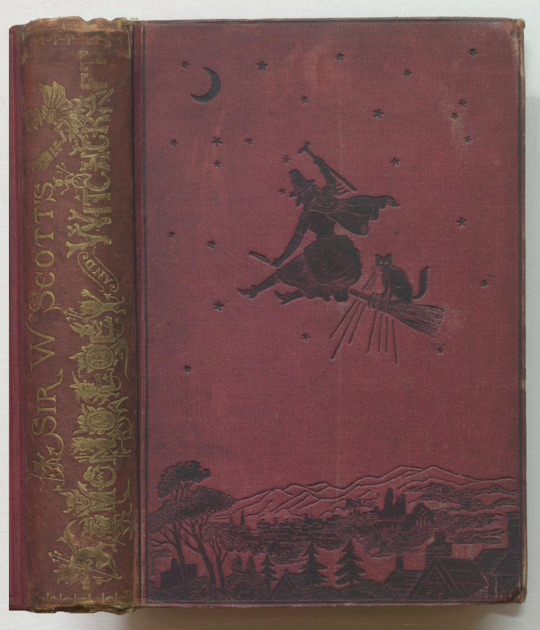Text
the scariest thing about today is that all around the world, the screams and panicked last minute frantic scrambling of writers can be heard
858 notes
·
View notes
Text
show, don't tell:
anticipation
- bouncing legs
- darting eyes
- breathing deeply
- useless / mindless tasks
- eyes on the clock
- checking and re-checking
frustration
- grumbling
- heavy footsteps
- hot flush
- narrowed eyes
- pointing fingers
- pacing / stomping
sadness
- eyes filling up with tears
- blinking quickly
- hiccuped breaths
- face turned away
- red / burning cheeks
- short sentences with gulps
happiness
- smiling / cheeks hurting
- animated
- chest hurts from laughing
- rapid movements
- eye contact
- quick speaking
boredom
- complaining
- sighing
- grumbling
- pacing
- leg bouncing
- picking at nails
fear
- quick heartbeat
- shaking / clammy hands
- pinching self
- tuck away
- closing eyes
- clenched hands
disappointment
- no eye contact
- hard swallow
- clenched hands
- tears, occasionally
- mhm-hmm
tiredness
- spacing out
- eyes closing
- nodding head absently
- long sighs
- no eye contact
- grim smile
confidence
- prolonged eye contact
- appreciates instead of apologizing
- active listening
- shoulders back
- micro reactions
90K notes
·
View notes
Text
tbh in some cases calling my projects "wips" kinda feels like a joke, because it implies that it's actually "in progress" rather than being a thing that plagues my brain every once in a while.
54K notes
·
View notes
Text
tag the oc that is a grump
94 notes
·
View notes
Text
“Five minutes. Just give me five more minutes and I swear I’ll make this right.”
29 notes
·
View notes
Note
Tips on how to change your writing style? Or at least develop it into something you like
Developing Writing Style
Writing style isn't something you can change over night. In fact, it takes most writers years to develop their writing style. But there are things you can do now to help things along:
1 - Take Stock of Favorite Style Elements - Most writers can point to a few other writers who influenced their style, so take a close look at the writers you love and see if you can pinpoint what it is you like about the way they write. These are style elements you may want to emulate in your own writing.
2 - Emulate Favorite Style Elements - If you discover elements of another writer's style that you love, don't be afraid to emulate them in your own writing. This isn't about copying their style... it's about trying out the parts of their style that you like, seeing how they work for you, and making them your own.
3 - Write, Write, Write, Write - There's no better way to improve your writing skills and develop your style than producing a large body of work. It's through the process of writing that your style is able to develop.
.♥.
•••••••••••••••••••••••••••••••••
Have a writing question? My inbox is always open!
Visit my FAQ
Find answers fast on my Master List of Top Posts
Go to ko-fi.com/wqa to buy me coffee or see my commissions
41 notes
·
View notes
Photo


SORORITÉ VINTAGE - Click to enlarge!
if you want to support this blog consider donating to: ko-fi.com/fashionrunways
798 notes
·
View notes
Text

Sunrise in the woods
911 notes
·
View notes
Text
tag the OC who is afraid of drowning
69 notes
·
View notes
Note
Hi!
May I ask?
How to show that two characters are romantically close, but without showing 'signs of affection' (touching each other), I don't know of any other ways to show romantic affection between characters, and my characters are reserved.
Sorry if you don't understand, English is not my native language.
Thank you for doing these asks ^^
Showing a Romantic Connection without Touch
There are lots of ways to show romantic interest/romantic connection without the characters touching, or even physically interacting in any way.
Body language and facial expressions go a long way:
stolen glances/eyes meeting
looking away bashfully after eyes meet
lingering looks/intense eye contact
sharing a knowing look
fluttering eyelids
raised eyebrows
tilted head
fidgeting around them
flirtatious tics: biting lip, twirling hair, running hand through hair
cheeks/neck/chest become flushed when around person
blushing when talking about person
sighing, either out of happiness or missing the other person
unable to hold back smile when other person appears
holding self/touching own arms/neck/face when can't touch other
clasping own hands as though holding other person's hand
leaning toward other person or trying to be physically near them
pursing/licking lips as though daydreaming about kissing them
preening (checking/fixing hair, makeup, clothes, appearance)
open/available/comfortable posture/body language
adopting their mannerisms/behaviors
communicating feelings through eyes (adoration, awe, interest)
If they're able to speak to one another, there are verbal indicators of romantic interest/connection:
feeling nervous/tongue-tied when talking to other person
voice cracking/fumbling for words
verbal flirting/making jokes
verbal availability/sharing info about self/asking about them
sharing secrets or things not often shared
using pet names/nicknames/terms of endearment
make excuses to speak with one another
working innuendo or deeper meaning into mundane conversation
Other non-physical signs of romantic interest/connection:
giving each other meaningful gifts
sharing meaningful possessions
keeping mementos as reminders of other person
making excuses to be near/spend time with other person
wanting to get to know other person's life/friends/family
willing to make sacrifices to make other person happy
losing track of time when with other person
reminded of other person when listening to love songs
feeling as though rest of the world melts away when together
Some signs that others might notice:
they stray from normal attitude/behavior around other person
good mood/smiling just before or after spending time with them
sad mood if they didn't get to see them that day
talking excitedly/affectionately about person to others
blushing when others press or tease about their interest
denying interest when pressed by others
I hope that helps!
•••••••••••••••••••••••••••••••••
Have a writing question? My inbox is always open!
Visit my FAQ
Find answers fast on my Master List of Top Posts
Go to ko-fi.com/wqa to buy me coffee or see my commissions
297 notes
·
View notes
Text
shoutout to writers who:
have chronic fatigue or brain fog
have memory issues
experience chronic pain
have focus issues
experience frequent malaise
have anything else that may make it difficult to type, come up with ideas, and/or stay motivated & working
you can do this, you belong here, and you deserve to treat yourself with kindness and care
24K notes
·
View notes
Photo

308K notes
·
View notes
Text

Demonology and witchcraft by Walter Scott, 1830
6K notes
·
View notes
Photo



Deborah Ann Woll for Rogue Magazine.
225 notes
·
View notes
Photo

RAINBOW WASH | yanpernofski
9K notes
·
View notes
Text
how to write relatable characters
writing relatable characters may seem like an easy task, especially when you’re constructing your protagonist. but what if you want to make your antagonist likeable? what if you want people to hate your protagonist but still root for them? all of this and more requires that your characters be relatable. they need to feel real, so how do you do that? here’s how:
- flaws: this is probably obvious. everyone has flaws, so we should give our characters flaws, too. this applies even if your character is non-human; they cannot escape the personification that we as writers or readers project onto them. we are humans reading, so we expect to see human qualities everywhere we look. if you’re having trouble of identifying your character’s flaws, here are some prompts for ways to think about flaws beyond a list:
what skills do they lack? what do they struggle with?
can their strengths be turned against them as a weakness?
what makes them react emotionally or impulsively?
are they aware of their flaws? if so, do they want to improve them or change them?
- quirks: these are what make your character unique or special, and no, i don’t mean purple eyes or unique physical traits. i mean: what makes your character authentically themselves? what traits define them that few others have? some ways to think about this are:
how do they react when nervous? do they have a tell? similarly, how do they react on behalf of any emotion?
what skills do they have that hardly anyone else has?
what obscure thing are they obsessed with?
do they have a unique outlook on life compared to their peers?
- values: these come from life experiences: where we were raised, our family and friends, our community, religious affiliations, etc. i suggest identifying eight to ten values that define your character and then narrowing that list down to five values that mark their core or essence. think about how these values influence their choices, decisions, and ultimately, the plot of the novel. here are some more prompts to think about values:
how do they react when their values are challenged? are they one to speak up or do they sit back in the shadows?
what, if anything, will change or shatter their values?
are their actual values misaligned with their believed values?
- stakes: what is at risk for your character? what is motivating them? stakes don’t need to be over the top or life or death; they can be as simple as maintaining a relationship or reaching a goal. unless there’s an outside influence (ie. percy’s mother being kidnapped in The Lightning Thief), most stakes—especially those relatable—tie back to values. even those influenced by outside factors can tie back to values: the only reason percy is motivated to get his mother back is because he cares for her and she is the one person who has always advocated for him and cared for him. he values family and riordan uses his family to motivate him and incite the plot. generally, there will be one overarching stake for your character, but throughout your novel, there should be several smaller stakes. these may not service the plot but should elaborate on your character nonetheless. some ways to think about stakes include:
how can i use internal or external factors to create convincing, relatable stakes that tie back to basic values?
why does the overarching stake matter to my character? why do they care?
how can i raise the stakes or introduce new ones that are relevant to my character and illustrate them as a relatable being?
- connection: even if your character is an introvert, they will still be connected to someone, something, or even an idea. we, as humans, look to certain people, pets, objects, and ideas to maintain our sense of reality whether we realize it or not. if your character prides themselves in having no attachments, think about the ideas or themes that mark the cornerstones of their reality. most human beings strive for some form of connection, so here are more prompts for thinking about your characters and connection:
what does connection mean to my character? how do they show how they value their connections or relationships?
how does my character’s behavior change when around different connections?
what connections define my character and their reality? how will these connections influence my character and/or the plot?
how will removing or challenging a connection change, influence, or motivate my character?
a good rule of thumb is to treat a character as a human, not a plot device. there is a time or place in which a character must act as a plot device, but if you’re wanting your readers to be compelled by your narration and the characters within them, you should strive to write your characters as human (aka as relatable). one of the greatest pleasures i find in writing is when other’s identify themselves in my writing.
you’re not just here to tell a story, you’re here to connect with others through the illustration of your characters. let the reader navigate your prose as a detective, to search for and identify the evidence provided by you. that is to say, show us how these things manifest in your character. don’t tell us.
happy writing! hopefully this post gave you some ways to start thinking about how to show the relatability of your character. if you have any questions about implementing these tools or about writing characters, our ask box is always open.
4K notes
·
View notes
Text
GUYS.
If you’re having trouble starting because you physically aren’t able to/can’t get yourself to get up and go to your computer or laptop…write on your phone.
Download whichever app you use, Google Docs or MS Word or Apple Pages or whatever, log into it, and WRITE THERE. It’ll still sync to your other device, you can make progress on your project, and you won’t even have to get up.
I know this probably sounds obvious, but it only just hit me within like…the last month or two. And it’s worked WONDERS.
WRITE ON YOUR PHONE.
1K notes
·
View notes